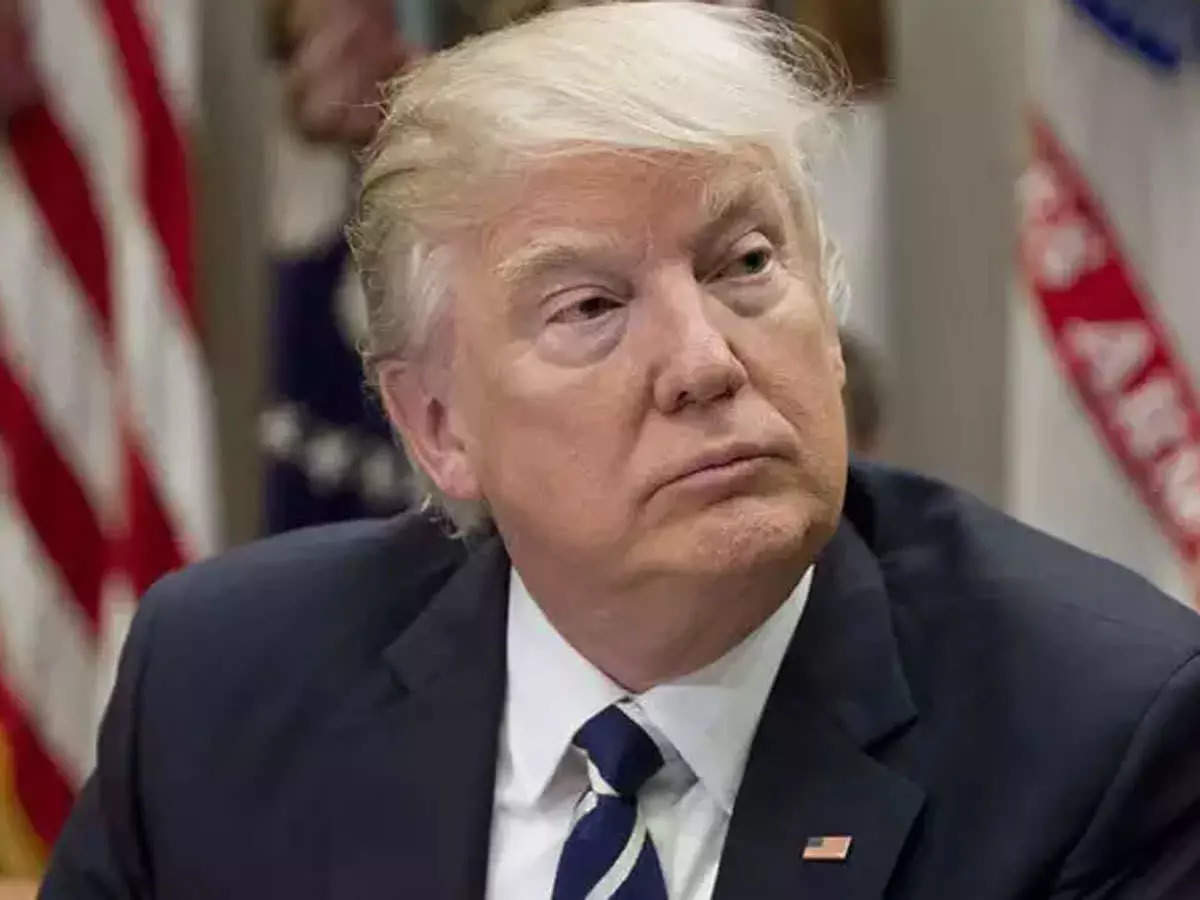
WASHINGTON: The special master requested by Donald Trump to review thousands of documents the FBI seized from his Mar-a-Lago home expressed skepticism about some of the former president’s arguments.
At his first hearing in the matter on Tuesday, US District Judge Raymond Dearie pushed back on the Trump lawyers’ position that they didn’t need to detail any alleged declassifications of highly sensitive records. The former president’s team has frequently raised the notion that Trump declassified documents to explain their presence in his home but has never explicitly said he did.
Addressing the lawyers in his Brooklyn, New York, courtroom, Dearie said the Justice Department had presented evidence that several of the documents were classified, noting they are marked as such. He pressed Trump’s lawyer, James Trusty, to explain why he should question the government’s determination.
“They are prima facie classified,” Dearie said. “What business is it of the court?”
Dearie’s sharp questioning was in keeping with his reputation as a straight-shooting judge who doesn’t tolerate nonsense. Though the Trump team recommended Dearie to be special master, the Justice Department readily agreed to his taking the post.
US District Judge Aileen Cannon in Florida appointed a special master after agreeing with Trump that the search of his home was unprecedented and would put his reputation at risk if he were improperly charged. Dearie’s main task is to give a recommendation to Cannon on whether any documents are covered by attorney-client or executive privileges or were Trump’s personal property.
Cannon, who was appointed by Trump, also ordered a halt to the documents’ use in a criminal investigation into whether Trump mishandled them. She further rejected the government’s request to exclude 100 classified documents from her order, saying their status is in dispute. The Justice Department has appealed both rulings.
At Tuesday’s hearing, Trump’s lawyers suggested Dearie’s push to get details on claims about declassification was going beyond Cannon’s order. The judge disagreed.
Clearance not enough
“I’m taken aback by your comment that I’m going beyond what Judge Cannon instructed me to do,” Dearie said. “I think I’m doing what I was told to do.”
The judge also said he took the issue of classification very seriously. After Trusty suggested he could view the documents because he already had a top-secret clearance from previously working at the Justice Department, Dearie said that might not be enough.
“Let’s not belittle the fact that we’re dealing with what is at least potentially classified information,” Dearie said. “The government has a strong obligation -- to all of us -- to see that information doesn’t get into the wrong hands. It’s not a matter of being cleared. If you need to know, you will know.”
The judge added that he would try to resolve the matter without viewing sensitive information himself.
Late Tuesday, the Justice Department told the 11th Circuit Court of Appeals in Atlanta that Trump “cannot articulate any plausible claim” for the return of classified documents seized by the FBI.
The government urged the appeals court to stay the part of Cannon’s order addressing the 100 classified documents.
“The district court’s injunction is preventing the government from using its own records with classification markings -- including markings reserved for records of the highest sensitivity -- in an ongoing criminal investigation into whether those very records were mishandled or compromised,” the DOJ said in a filing.
The Justice Department was responding to a brief field earlier in the day by Trump’s lawyers urging the appeals court to affirm Cannon’s appointment of Dearie.
Trump “scarcely even attempts to explain how such records could be subject to a valid claim of executive privilege, attorney-client privilege, or return of property,” the government said.
The DOJ also knocked Trump’s elusive “declassification” argument.
The former president “again implies that he could have declassified the records before leaving office,” the government said. “As before, however, plaintiff conspicuously fails to represent, much less show, that he actually took that step.”
The Justice Department has repeatedly argued that any purported declassification wouldn’t impact where laws where potentially broken. Declassification “would still be no justification for restricting the government’s use of evidence at the center of an ongoing criminal investigation,” DOJ said.







